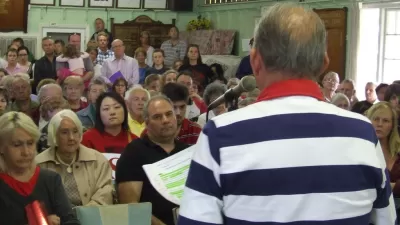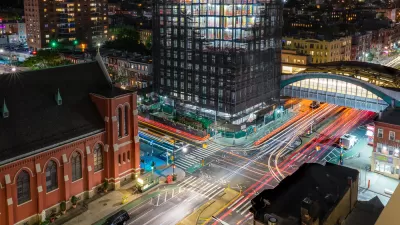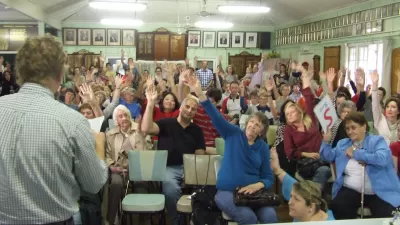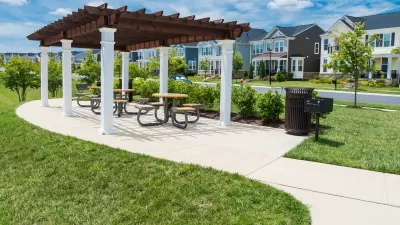Dating back to a tradition begun in the 1630s, public meetings are an essential part of the political systems, and planning processes, of U.S. cities. Public meetings are also broken, according to this article.

Patrick Sisson writes on the subject of public meetings—surely a favorite subject of planners all over the Unite States. Public meetings are broken, pronounces the headline of the article, and there are plenty of anecdotes to back up the claim.
Sisson starts with a short history of public meetings, before sharing numerous studies that present evidence of the unrepresentative reality of public meetings, despite the democratic intentions of such gatherings, and describes the roots of the problems plaguing public meetings around the country.
Sisson also includes recommendations for solving the root problems with public meetings, citing the expertise and experience of professionals from the Greater Good Studio. Another big question examined in the article is whether public meetings, and by extension local control, is a useful tool for planning and democracy at all.
Looking for more anecdotes on the state of public meetings in U.S. cities, Sisson is also requesting contributions at #worstpublicmeeting on Twitter. Responses can also be found in the replies on the tweet below.
Neighborhood meetings, a cornerstone of local democracy & planning, can be biased, unrepresentative & devolve into screaming matches. I spoke w/experts to hear why they're broke & how to fix them. Tell me your meeting horror stories #worstpublicmeeting https://t.co/GXZppK2CsY
— Patrick Sisson (@patrickcsisson) February 12, 2020
FULL STORY: Public meetings are broken. Here’s how to fix them.

Planetizen Federal Action Tracker
A weekly monitor of how Trump’s orders and actions are impacting planners and planning in America.

Restaurant Patios Were a Pandemic Win — Why Were They so Hard to Keep?
Social distancing requirements and changes in travel patterns prompted cities to pilot new uses for street and sidewalk space. Then it got complicated.

Map: Where Senate Republicans Want to Sell Your Public Lands
For public land advocates, the Senate Republicans’ proposal to sell millions of acres of public land in the West is “the biggest fight of their careers.”

Maui's Vacation Rental Debate Turns Ugly
Verbal attacks, misinformation campaigns and fistfights plague a high-stakes debate to convert thousands of vacation rentals into long-term housing.

San Francisco Suspends Traffic Calming Amidst Record Deaths
Citing “a challenging fiscal landscape,” the city will cease the program on the heels of 42 traffic deaths, including 24 pedestrians.

California Homeless Arrests, Citations Spike After Ruling
An investigation reveals that anti-homeless actions increased up to 500% after Grants Pass v. Johnson — even in cities claiming no policy change.
Urban Design for Planners 1: Software Tools
This six-course series explores essential urban design concepts using open source software and equips planners with the tools they need to participate fully in the urban design process.
Planning for Universal Design
Learn the tools for implementing Universal Design in planning regulations.
Heyer Gruel & Associates PA
JM Goldson LLC
Custer County Colorado
City of Camden Redevelopment Agency
City of Astoria
Transportation Research & Education Center (TREC) at Portland State University
Camden Redevelopment Agency
City of Claremont
Municipality of Princeton (NJ)





























